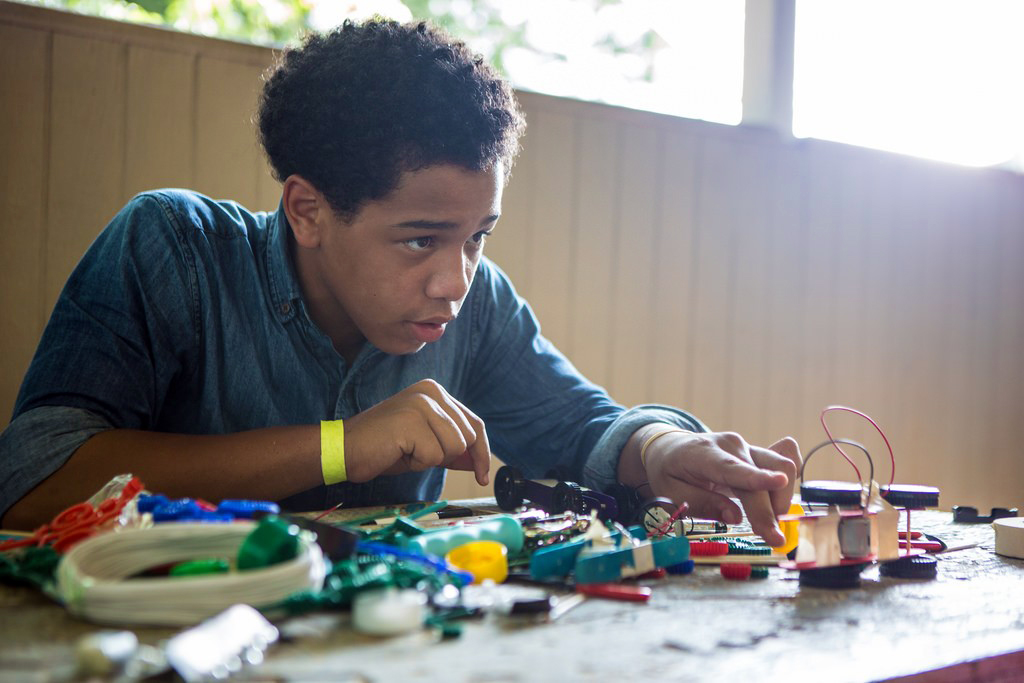Texas 4-H Science, Technology, Engineering & Math Project
- Type
- Project
- Offered by
- Texas 4-H STEM Program

Overview
Contact
4-H is rooted in science and STEM is engrained in all 4-H projects, so youth members have the opportunity to learn through all types of 4-H activities, lessons, and contests. Beyond the scope of traditional 4-H projects, youth can learn how to build and program robots, 3D print, explore space, code software, launch rockets, and so much more. 4-H STEM projects fosters curiosity and sparks innovation.
Project clubs, groups, or teams can meet at the local level to learn basic to advanced skills. Contact your local County AgriLife Extension office to see if there is a club or group that meets near you.
A STEM camp is available each summer at the Texas 4-H Center. Visit their website for dates and details. Statewide leadership opportunities are available in the STEM project through the STEM Ambassador program.
More choices in 4-H STEM
- Course
Explore math in an early childhood setting and see how mathematical concepts develop from simple to complex. Identify five math content areas and gain strategies for integrating concepts in a way that will engage preschool children all day. Connect math concepts to literacy in a math-rich environment in the classroom.
- Course
Experience a variety of counting activities and developmentally appropriate approaches for teaching addition and subtraction. Explore principles, objectives, and developmental stages of counting and examine ways to support children’s counting in everyday situations. Number and operations tasks for preschoolers are provided.
- Course
Develop a pathway to enhance classroom science centers by means of interactive science experiences for preschool children. Explore the scientific process and making discoveries within four different areas of science: Life Science, Health Science, Physical Science, Earth and Space, and Environmental Science.
- Course
Developing a strong foundation in mathematics during the preschool years with high expectations regardless of gender, race, socioeconomic or language background is critical for all preschool children. Specific math materials which allow children to explore mathematical ideas throughout the classroom are provided.
- Course
Going beyond counting and using numbers is important for preschool children. Geometry, spatial relations and shape, processes and developmental stages of measurement, and how preschoolers develop understanding of classifying, graphing, and patterning are explored. Classroom tasks with instructions are given.
- Course
Developmentally appropriate preschool STEM (science, technology, engineering and math) experiences give young children opportunities to develop divergent thinking, problem solving, and cause and effect. Experiences have great potential to affect brain development during the crucial early childhood window of opportunity.
